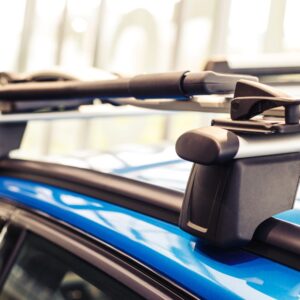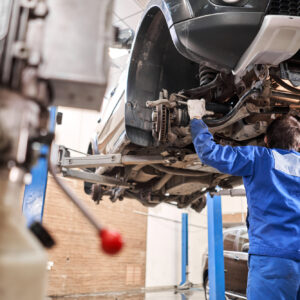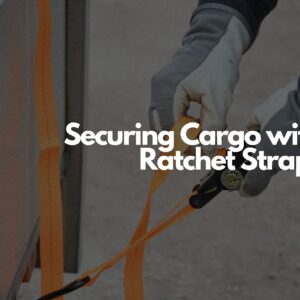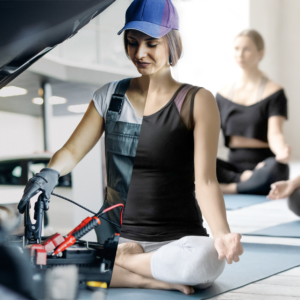Overlanding is an amalgamation of off-road activities, including camping, off-roading, and more. The primary goal of overlanding is to travel to remote locations where little exploration has occurred.
Overlanding vs Off-Roading
The difference between overlanding and off-roading is the length of the adventure. Off-roading usually only takes a day, while overlanding takes weeks, months, or even a year. This means people that overland use camping as the primary method of lodging.
Circling back to the length of the adventure, some people even opt to travel across international boundaries to get the most out of the journey.
Overlanding began in the early 1900s when Australians started establishing routes for long-distance travel within the continent to trade farm animals. The activity reached new heights when it evolved into what it’s known today, mainly inspired by road builder and surveyor Leonard Beadell.
As cliche as it sounds, the activity is about the journey. Compared to a one-day off-roading, overlanding allows you to immerse in different cultures, engage with local communities, and learn about diverse cultures firsthand.
It’s also done to develop skills to navigate new and difficult terrains and rely on instincts and skills to adapt and survive remote areas. Lastly, overlanding is a nice way to break free from the routine and experience a different lifestyle for a prolonged period.
Best Overlanding Vehicles
Overlanding is an activity that requires preparation and the appropriate tools and vehicle to handle months of off-road activities. If you’re looking for a truck that can handle overlanding, consider the following models:
- Toyota Tacoma
- Toyota 4Runner
- Toyota Land Cruiser
- Jeep Wrangler
- Ram 2500 4×4
- Ford Ranger
- Ford Bronco
- Ford Excursion
- Chevrolet Colorado ZR2 Bison
- Lexus GX
Things to Consider When Buying an Overlanding Vehicle
The vehicle you choose to drive when overlanding is arguably the most crucial part of the journey. If you’ve yet to buy a new truck, it’s important to consider its off-road capabilities, reliability, fuel efficiency, and cargo/towing capacity to ensure it can handle overlanding.
Off-Road Capabilities
Look for a vehicle that has four-wheel drive, oversized tires, enough ground clearance, and moderate suspension to safely traverse rough terrain.
Reliability
Choose a model that isn’t prone to breakdowns or other issues that may hinder your adventure. If you already have a truck, it may be best to take it to a mechanic to inspect its driving capabilities for months on difficult terrain. You should also follow proper maintenance leading up to the journey to ensure your safety.
Fuel Efficiency
A truck with good fuel efficiency is also needed since you’ll travel for weeks. Stopping for fuel is normal, but ensure the vehicle can drive 50 miles without refilling. You may also find yourself in the middle of nowhere, so it’s best to stock up on fuel jugs for easier refills.
Cargo/Towing Capacity
You’ll need a ton of cargo for camping gear since you’ll use it as your primary lodging. An overnight camping trip requires a ton of space, so imagine how much you’ll need to handle weeks worth of outdoor living.
In addition, you need space for other overlanding tools and equipment, such as safety gear, emergency kits, spare tires, and more. If you plan to tow an off-road trailer, you’ll need a truck with enough towing capacity to safely pull.
Overlanding Tips

To get the most out of overlanding, it’s best to get proper camping gear, invest in safety, experience it your way, and know that it’s all about trial and error.
Get Proper Camping Gear
Since camping gear will be your main lodging during your trip, invest in high-quality tents, cookware, portable showers, and more.
You’ll also want repair tools, such as multi-tools, duct tape, and a pad/mattress repair kit to patch any damage you incur on your adventure.
Invest in Safety
Don’t forget to bring first-aid kits, extra batteries, a flashlight, chargers, tools to repair your vehicle, a fire extinguisher, and more. While you’re at it, prepare an extra vehicle battery and a spare tire.
Experience It Your Way
Part of the fun of overlanding is experiencing different cultures and seeing how different parts of your country live. This means your experience will differ from others, so it’s best to enjoy it your own way.
For example, just because someone opted to cook their meals doesn’t mean you have to. You can choose to try out local restaurants to get a feel of how each town or city eats.
Think of what you want your adventure to look like, pack the tools, map the routes, and explore the places you think will make for a worthwhile adventure.
Trial and Error
The first overland journey is always about learning. Once you’re done, you’ll realize what items you need to pack or remove, depending on your experience. It’s all trial and error, which makes every overlanding adventure different from the next one.
Any information provided on this Website is for informational purposes only and is not intended to replace consultation with a professional mechanic. The accuracy and timeliness of the information may change from the time of publication.



















